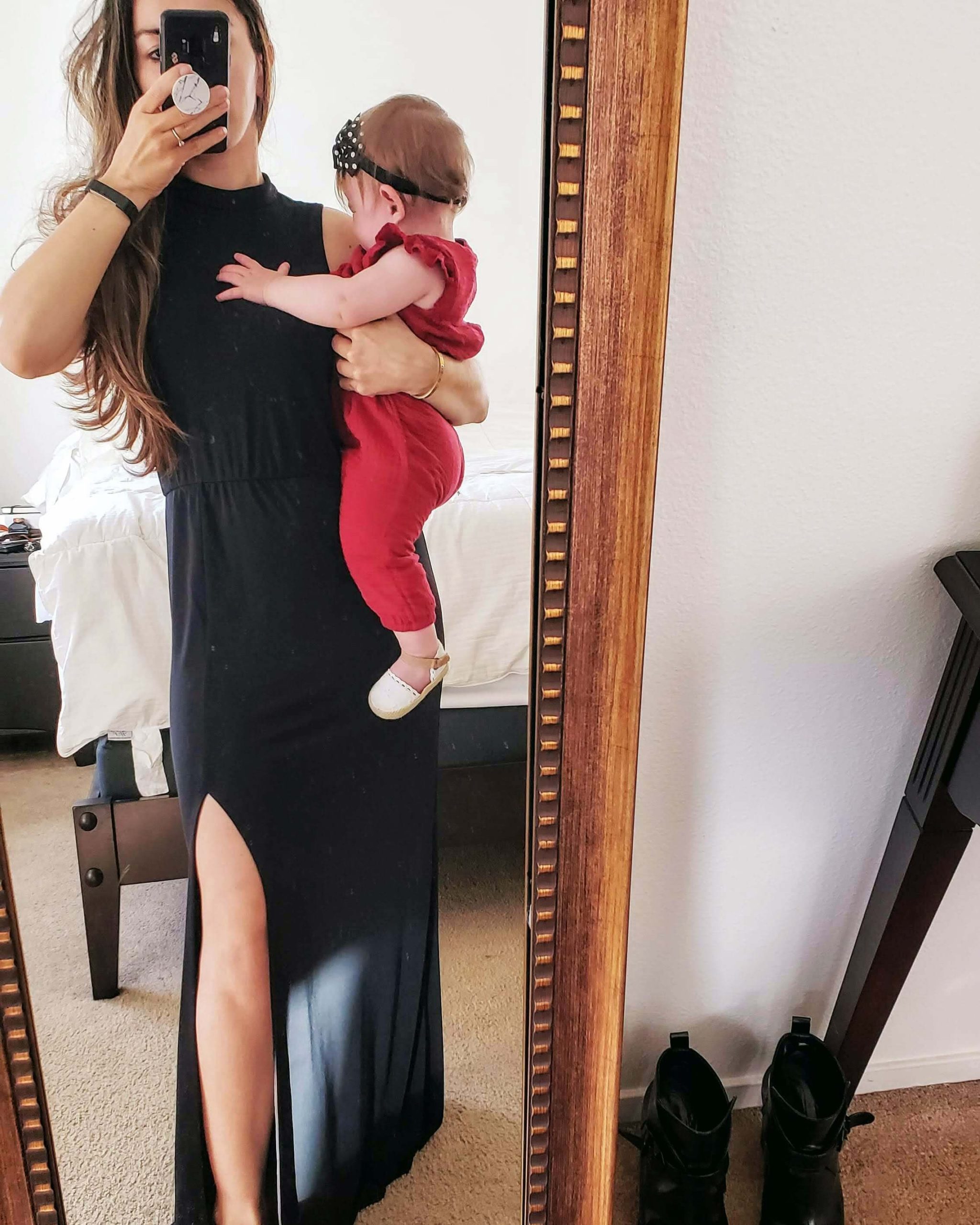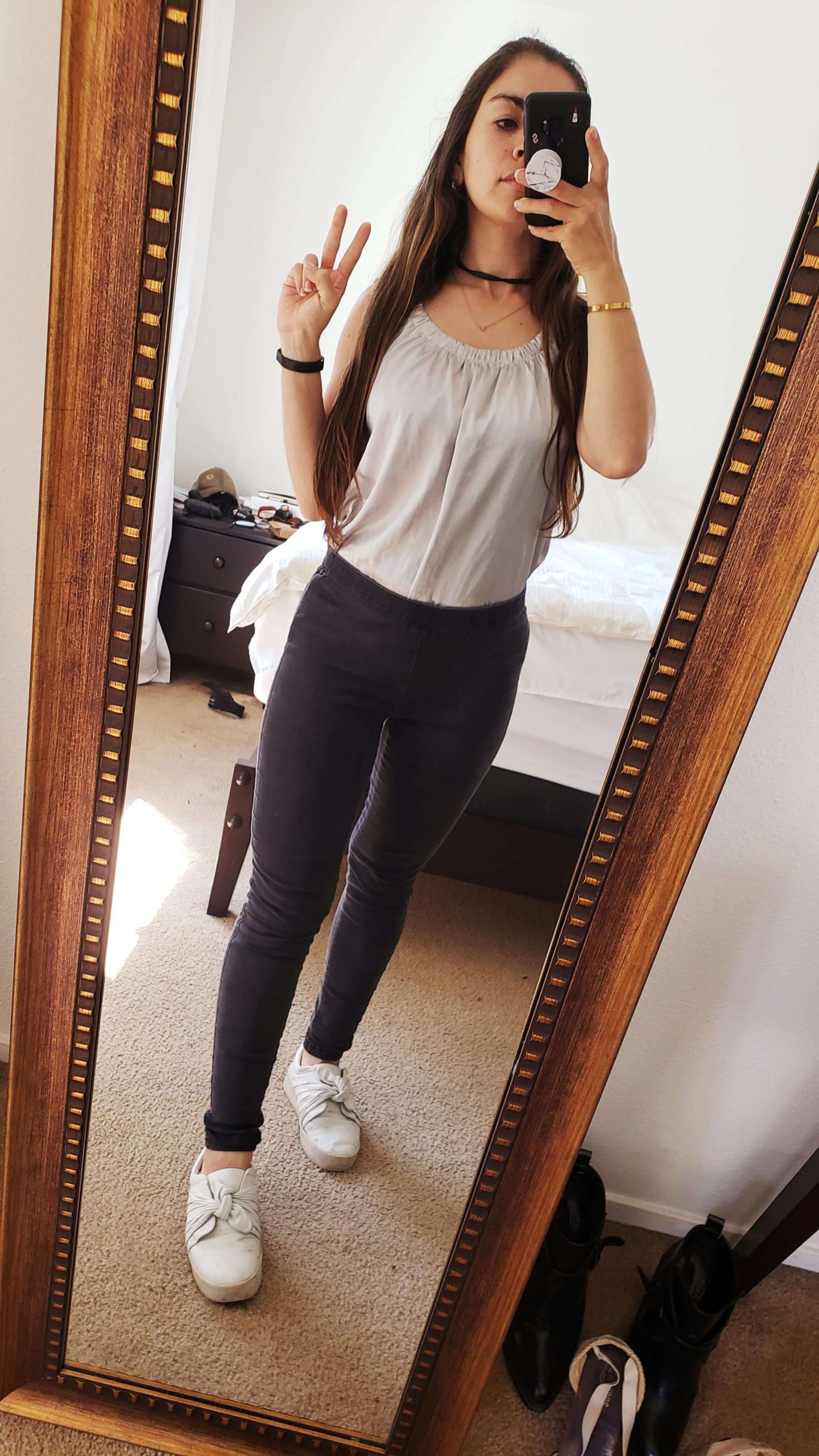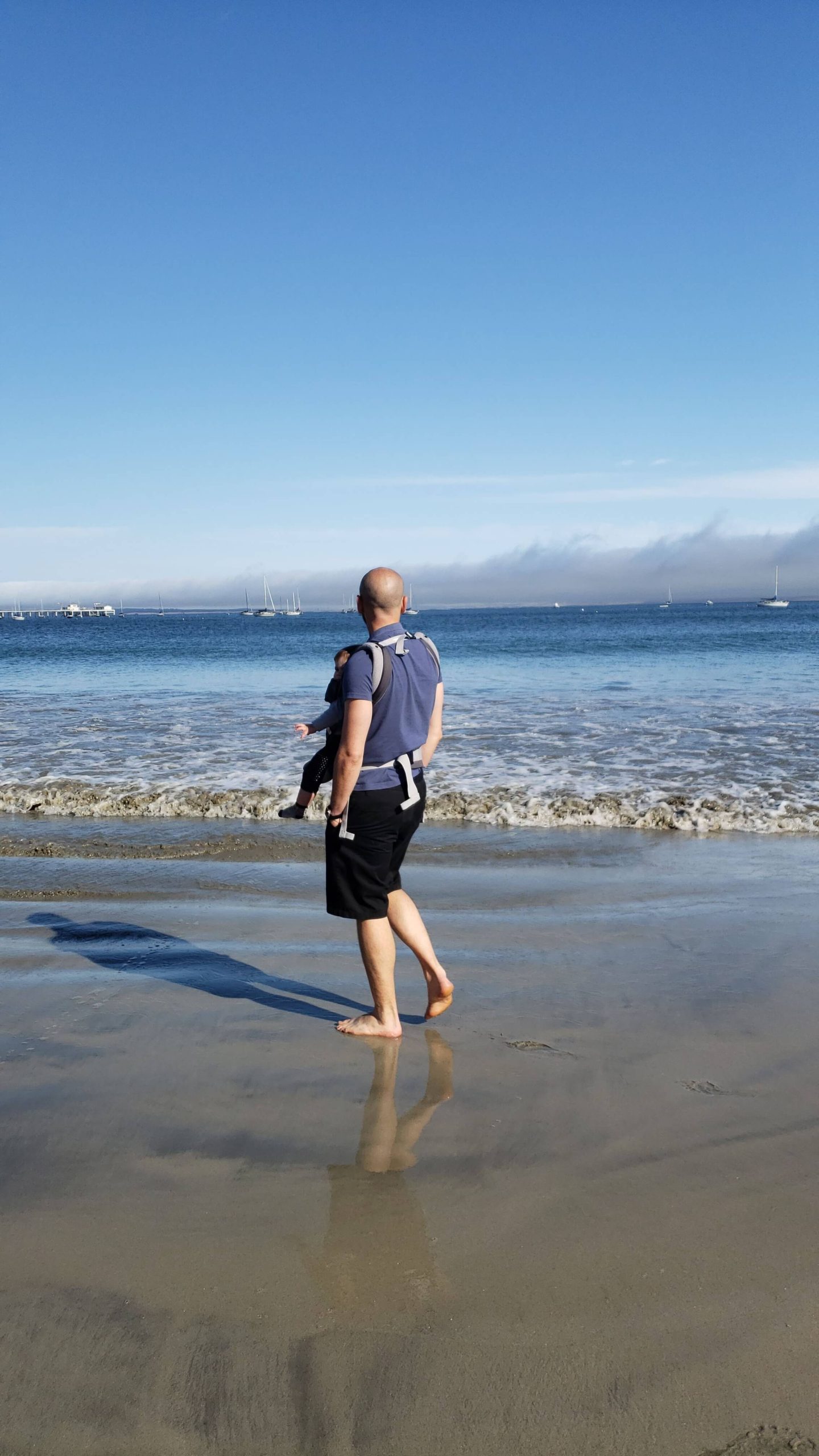Pictured: vintage dress and eBay’d DocMartens baby boots, my favorite kind of sustainable baby products.
There are two clear phases of my attitude towards sustainable baby products: pre-baby and post-baby. Before having a baby, I idealized the experience and thought I could get away with purchasing only sustainably made baby clothes, like organic cotton onesies and more eco-friendly baby care products like bath gels and random creams that I thought my baby would need (I also thought I could work from home while taking cate or a newborn, but that’s another post).
TLDR: it’s kind of impossible and impractical, at the very least, to buy only sustainable baby products.
In the same spirit of sustainability and pseudo-minimalism, I thought my house would never be like the houses of those people who accumulate toys in their living room, displaying all sorts of non-monochrome, non-mid-century baby crap, creating a chaotic colorful picture that exemplifies the excesses of first-world consumerism.
I was only partially right.
My living room is still pretty monochromatically styled, but I understand those people better now. I am one of them.
Let’s be real about this: if environmental sustainability was your main priority in life, you wouldn’t have a baby. Having a baby is worse for the environment than driving a car, eating meat, or traveling by plane, according to a study conducted by people who hate life.
Since saving the planet is not my life’s mission, I went on to have a baby. Hello, Earth’s slow obliteration!

Sue me, I had a baby. And it is not a sustainable one.
Even if you want to minimize the amount of stuff you buy for your baby, there are just so many things that you need, or you think you need, or people tell you you need… other things are just cute and you want them because this is America and we don’t need an excuse to overconsume.
Most baby clothes, by definition, will only last a few months because your baby grows so fast it’s hard to conceptualize before it’s actually happening. Same with baby shoes, toys, hats, mittens, sleep sacs, even pacifiers have sizes that vary with age. Of course, part of this obsession with very specific baby sizes is just a way to sell you more, so don’t believe that your 0-3-month onesies will literally be useless after 3 months. I’m still using some of them 4 months later.
The point of this article is that it’s really hard to only buy sustainable baby products: it’s impractical, difficult to execute, boring and unnecessary, in my humble opinion.
Instead of trying to do that, I realized early on that I was going to have to do a combination, some traditional baby stuff, and some more consciously-made and more eco-friendly baby products.
I even considered cloth diapers, then I woke up from that temporary stupor and decided not to ever think about that again.

This is just a picture of me to break up the text and to celebrate losing the baby weight, yay! Shoes: Senso, top and pants: thrifted.
I was very lucky and received a lot of used baby stuff from friends, meaning I didn’t even have to think too much about this sustainability predicament. Reusing old baby stuff is probably the best you can do for the environment when it comes to baby clothes and gear. I am living that mantra.
More sustainable baby shopping
These are a few things I did to be more sustainable regarding baby products:
- Aggressively use friend’s secondhand baby clothes and gear
- Buy baby gear from eBay or other secondhand markets
- When shopping brand new things, consider functionality and versatility
- Buy a size or two larger
- Minimize the “special occasion” outfits
Baby products you do not need
There are products nobody really needs, here are a few products I kept seeing in baby must-haves shopping lists that I did not buy or need:
- Baby towels: you can just use a regular towel
- Wipe warmer: this is recommended only by moms with affiliate links
- Diaper pail: I don’t have one and I’m alive
- Baby mittens: I had some and didn’t use them once
- Bath scoop or rinser: you probably have some other plastic cup you can use
- Baby bathrobe: do I even have to explain this one?
- Diaper bag: you can use a nice handbag or backpack
- Baby moisturizing lotion: my pediatrician has never recommended this, so yours might but I’ve never used it
- Baby oil: not needed unless your pediatrician recommends it for cradle cap, for example
- Baby powder: STAY AWAY! There isn’t enough scientific evidence to determine what are the possible negative effects linked to the use of baby powder, but it’s unnecessary and It’s just not worth the risk
- White noise machine: just ask Google Home or Alexa to play white noise
- A baby shusher: you already have a shusher integrated into your body and you can also ask your smart speaker to play shhhh sounds
A minimal, yet realistic baby must-haves guide
Here is the full list of baby products I have bought so far, “sustainable” and not sustainable. I might be missing a few, but this came straight from my Amazon and Target order history.
- Baby Clothes
- Baby Care
- Baby Accessories
- Baby Toys
- Baby Books
- Baby Food
- Pregnancy & Nursing
A note about clothes
Pregnancy clothes: I felt a little guilty buying pregnancy clothes knowing that they would only fit for a couple of months, so I decided that spending in high-quality, durable and sustainably made maternity clothes didn’t make a lot of sense. I only bought conventional (non-sustainable) super essential items like new nursing bras for my larger body parts and underwear that fit nicely over my baby bump. The one thing I wanted to have even if it was a little unnecessary was my own hospital robe because hospital robes are gross.
Baby clothes: before the baby was here, I thought I would only buy organic cotton, ethically-made, gender-neutral baby clothes. Then I had a baby and, all of the sudden, the instinct to dress your baby up takes over and you realize that they will only be babies for a very short period, so you better get your doll dress-up impulses out of the way now. This may be my only baby too, so I have another reason to buy unnecessarily cute baby clothes. I must say I received A LOT of baby clothes from friends, so I enjoy the benefit of not having to do laundry too often and having many many more pajama options than I would ever need.
Every non-sustainable & Sustainable pregnancy and baby product
Books – Buenas Noches Luna
Books – El Abecedario de Lucia
Books – Gender Neutral Baby Book
Care – Baby sponge
Care – Baby Wash
Care – Grooming & Care Kit
Care – Butt Paste
Care – Diaper Cream Brush
Clothing – Baby Headbands
Clothing – Baby Boots
Clothing – Burt’s Bees Baby Pajamas
Clothing – Baby Socks
Clothing – Burt’s Bees Baby Bodysuits
Diapering – Waterproof Baby Pants
Food – Plum Organics Organic baby food
Food – Gerber Organic Baby Food
Food – Baby Spoons
Food – Enfamil
Food – Enspire Baby Formula
Gear – Baby One-Piece Swimsuit
Gear – Natural Rubber Baby Pacifier
Gear – Baby Pacifier Clip
Gear – Chicco Travel System
Gear – Happiest Baby Swaddle
Gear – Baby Wrap
Mom – Pumping & Nursing Bra
Mom – Pumping Bra
Mom – Nipple Cream
Mom – Nipple Butter
Mom – Breast Pump
Mom – Nipple Pads
Mom – Extra Pumping Set
Mom – Milk Storage Bags
Mom – Milk Storage Bottles
Mom – Nursing Tops
Nursery – Waterproof Crib Sheet
Nursery – White Fitted Crib Sheet
Nursery – White Crib Skirt
Nursery – Baby Cotton Flannel Receiving Blankets
Nursery – Glider and Otoman
Nursery – White Bookshelf
Nursery – Gold Frame Mirror
Nursery – Chandelier
Nursery – Burt’s Bees Baby Fitted Crib Sheet
Nursery – Changing Pad Fitted Sheet
Nursery – Changing Par Liners
Nursery – White cChest of Drawers
Toys – Pool Toy With Canopy
Toys – Cloth Books for Baby
Sustainable Baby Brands
These are a few brands that I’ve tested and would recommend based on my experience.
- Burt’s Bees Baby: organic cotton baby clothes
- Honest: diapers, baby wash, baby wipes
- Finn + Emma: organic cotton, gender-neutral baby clothes
- Pipette: premium non-toxic baby cate products

My last piece of advice is to have one of these because they make everything better (the husband, not the Ergobaby)…

















































